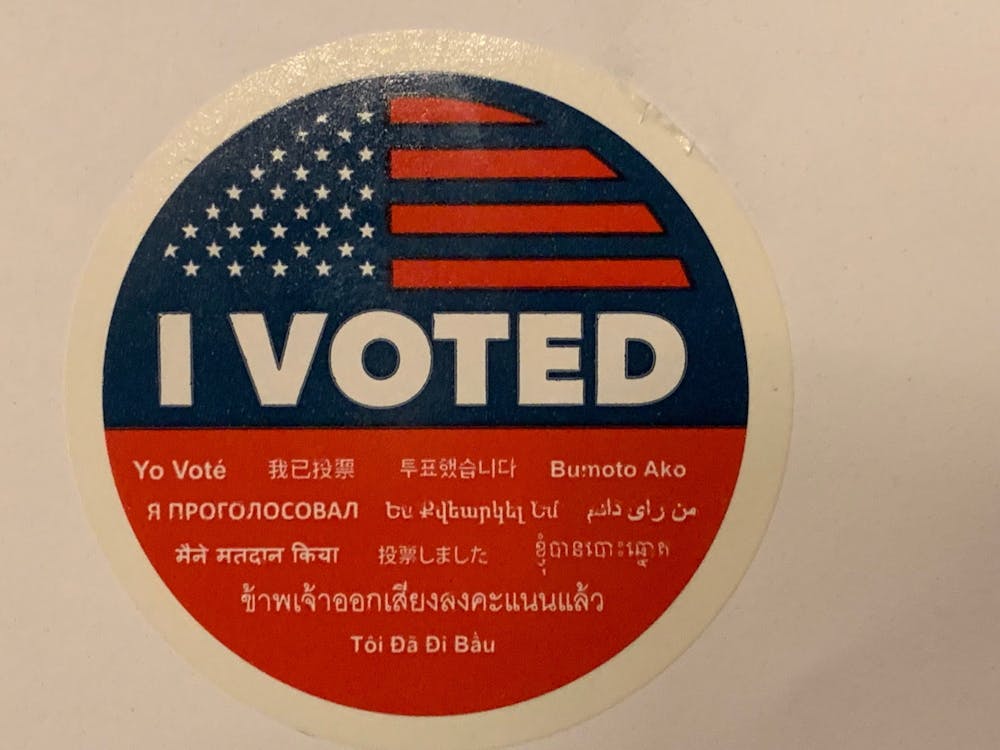The Democratic presidential nomination campaign is at a critical juncture and Virginia is coming off a landmark legislative session.
What impact is this highly saturated political environment having on campus? Are students put off by the divisiveness of politics or missing an opportunity to be engaged at a historic time?
Interviews in the days leading up to Super Tuesday (March 3) showed some of the challenges of raising political awareness and participation.
Valentina Zuluaga, a sophomore and the president of the University of Richmond College Democrats, said that despite UR being what she viewed as not a particularly politically active campus, students had a responsibility to become more involved.
Although it may feel more natural for some students to communicate their opinions if they study politics or political behavior, broader participation is needed to develop a culture that respects diverse opinions, she said.
“A lot of my non-political-science-major friends seem hesitant to say something,” Zuluaga said. “Even … to address a root problem or take accountability for how their actions perpetuate the campus culture. I'm not trying to blame them, either, but accountability is, in my opinion, what’s most important in changing that.”
Carl Wagner, a sophomore and the president of the College Libertarians of the University of Richmond, said the different levels of political activity among students in different majors might be attributed to the ideologies identified in the different schools .
“The business school seems to be more right-wing leaning, and I’ve taken plenty of social studies courses and I can definitely say they’re left-leaning,” he said.
One way to bridge apparent divisions among students is to highlight and expand on-campus dialogue on issues they are passionate about.
Jared Calfee, executive director of Virginia21, a non-partisan organization focused on student advocacy in the Virginia legislature, highlighted this point. Calfee works closely with college students to help them transform their passions into advocacy and grow their communication skills in a political context.
“A lot of the students we work with are passionate about campus safety and sexual violence, along with equity more broadly based,” Calfee said. “Equity in our society and the inequality and injustices that currently exist [are things] that students are really passionate about.”
At UR, students are similarly passionate about a variety of issues. Zuluaga and Wagner identified topics such as health care, immigration, taxation, drug legalization, sexual assault prevention, war prevention and equality as their and their friends’ priorities when identifying their candidate in the upcoming elections.
Enjoy what you're reading?
Signup for our newsletter
“A lot of my friends are passionate about health care,” Zuluaga said. “I’m looking for someone who can at least address the immigration issue in a better way than it’s being addressed now.”
Although many students feel passionate about certain issues, there is often little dialogue between opposing sides or activity around their interests because many seem concerned about clashing over politics, Wagner said.
Wagner said students could avoid potential divisiveness by developing a dialogue that abstains from judgement.
“There are a lot of people I know who do have their political opinions but are very private about them,” Wagner said. “I think this campus could benefit from people just reaching out more, judgment-free. I think we'd be better off if we all voiced our opinions peacefully, even if we are not solving anything.”
Zuluaga believes it is not the responsibility of the students themselves to develop forums for these types of conversations, she said.
“I think it’s the responsibility of the campus political organizations to do more and get more membership, because we have a politically apathetic campus right now,” Zuluaga said. “There is no release for those people or ways for them to properly discuss politics. It’s up to the political clubs to give people that route to communicate and have a focus on politics.”
Once young people become empowered, they can have an immediate and lasting effect in politics, Calfee said.
“There’s a lot of research that people that get involved and start voting at such a young age ... are much more likely to stay engaged and involved throughout their life,” he said.
The College Republicans declined a request to be interviewed for this article.
Contact contributor Claire Paulhac at claire.paulhac@richmond.edu.
Support independent student media
You can make a tax-deductible donation by clicking the button below, which takes you to our secure PayPal account. The page is set up to receive contributions in whatever amount you designate. We look forward to using the money we raise to further our mission of providing honest and accurate information to students, faculty, staff, alumni and others in the general public.
Donate Now



